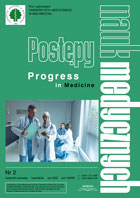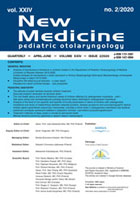Wszechstronność opieki w podmiotach leczniczych podstawowej opieki zdrowotnej regionu Polski południowo-wschodniej w opiniach pacjentów
Monika Binkowska-Bury
Instytut Pielęgniarstwa i Nauk o Zdrowiu, Wydział Medyczny, Uniwersytet Rzeszowski
Sylwia Wierzbińska-Karakuła
Instytut Pielęgniarstwa i Nauk o Zdrowiu, Wydział Medyczny, Uniwersytet Rzeszowski
Joanna Burzyńska
Instytut Pielęgniarstwa i Nauk o Zdrowiu, Wydział Medyczny, Uniwersytet Rzeszowski
Mariusz Małecki
Niepubliczny Zakład Opieki Zdrowotnej – Sokrates, Rzeszów
Paweł Januszewicz
Instytut Pielęgniarstwa i Nauk o Zdrowiu, Wydział Medyczny, Uniwersytet Rzeszowski
Introduction: The opportunities offered by planned studies of patient knowlegde and a wide range of services in primary care enables faster and effective treatment, better adaptation to the changing needs of beneficiaries and help patients increase their satisfaction.
Aim: The aim of this study was to assess the knowledge of primary care patients about care delivery in the category – comprehensive care and the access to information about this implementation.
Material and Methods: The study was performed between January and February 2013 at randomly selected 150 primary care units with the use of an interview questionnaire among 1000 patients. The study used chi-square test of independence.
Results: Most respondents know that doctors’ home visits (77.3%), nurses and midwives (6.5%) are carried out but a small percentage of patients use them (once a month: 5.1%, annually: 12 , 4%). More than half of respondents (52.0%) have insufficient knowledge about availability of health plans for the vaccination, screening programs and educational activities aimed at changing the lifestyle. It has been shown that women are more oriented in the above-mentioned issues. The patients’ biggest objections concerned the inability of getting advice over the phone.
Conclusions: Patients from the south-eastern Poland report lack of knowledge of most aspects of the 6 realized in primary health care units in the category – comprehensive care. The results suggest the management to disseminate information about the possibility of obtaining medical advice by phone, as well as improving the system of informing patients about the implementation by the health activities in the field of health promotion and prevention.














